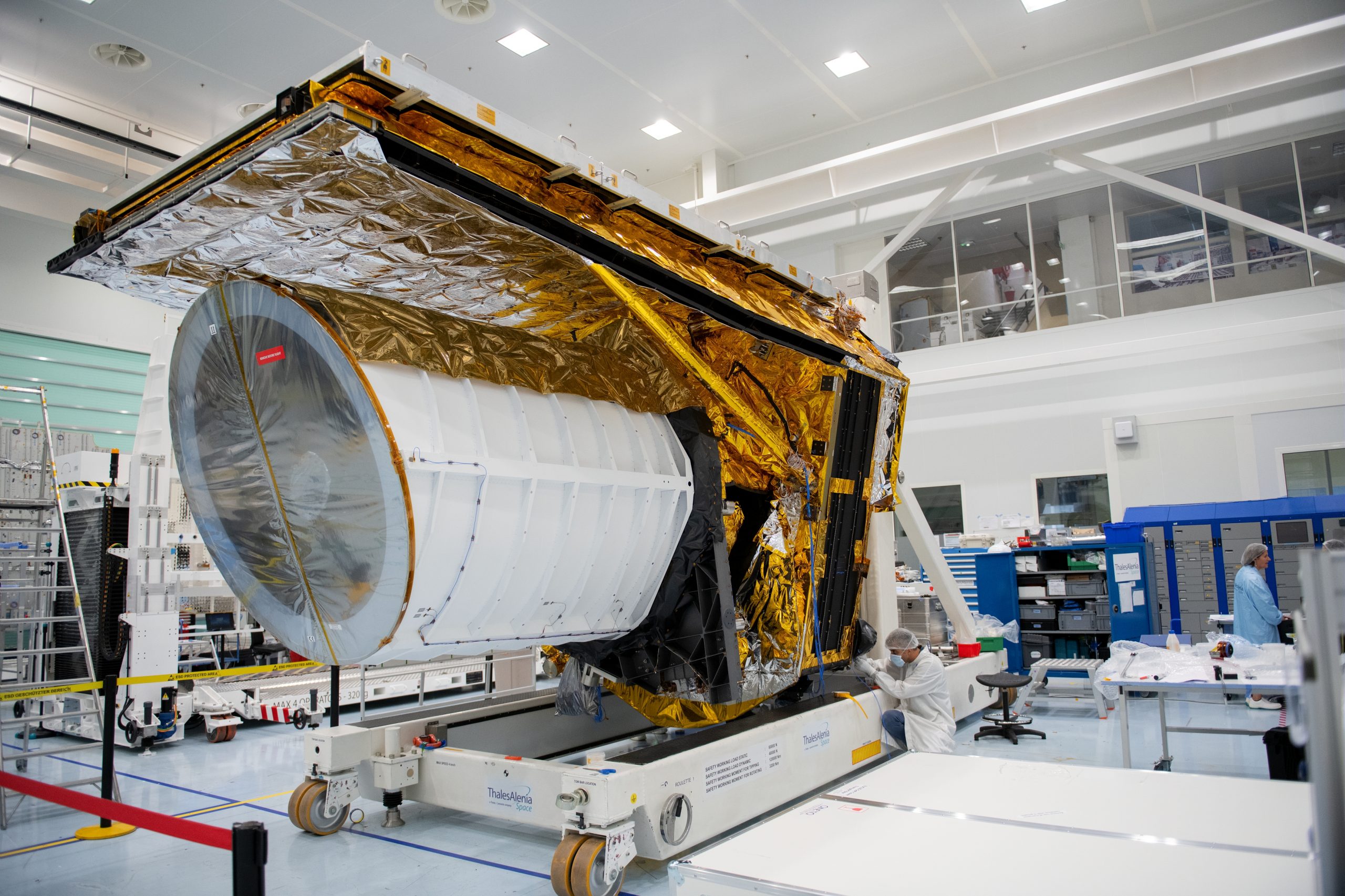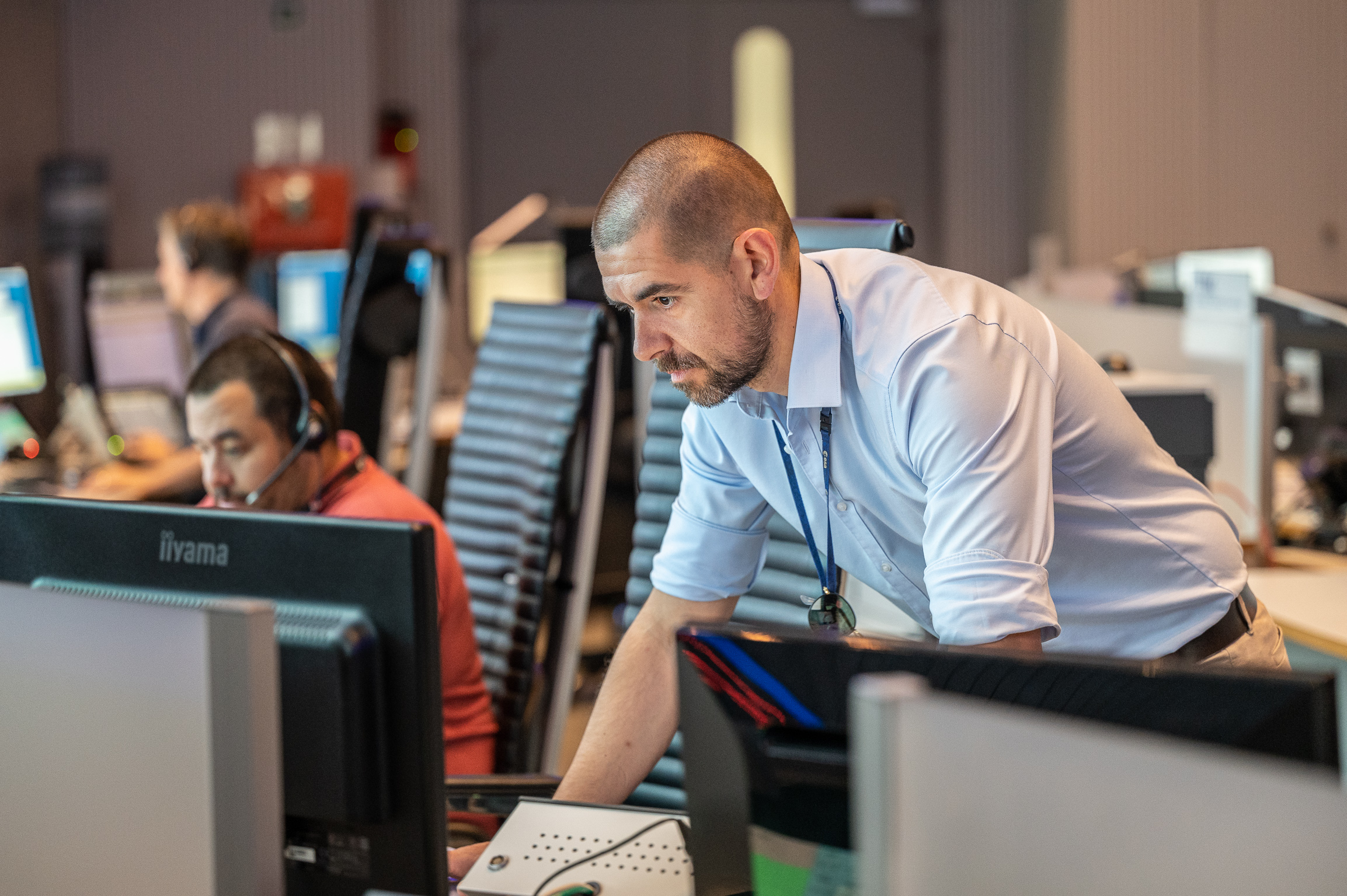Euclid, the ESA mission looking into the unknown Universe, has a Portuguese touch
ESA's Euclid mission will look at dark matter and energy and observe "more than a third of the sky", producing "the largest and most accurate three-dimensional galaxy survey ever performed". Portugal will lead the observations and several companies have been involved in the development of various instruments.
For millennia, the bright spots we see in the dark sky have been of interest for the human race. But there is much, much more beyond what is visible – to the naked eye or otherwise. So much so that 95% of our universe is made up of dark energy and dark matter. To date, neither of these unknowable entities has ever been directly detected.
We do know that they neither emit nor absorb light, but that they affect the movement and distribution of what we see. But there is a space telescope that can lift the veil on the secrets that the unknown hides: the Euclid mission, from the European Space Agency (ESA).
It is a pioneering mission, being the first to address this issue. “It is like a leap in the dark and into the last 10 billion years of the Universe’s history. It is expected to represent a major advance in the fields of cosmology and astrophysics,” points out Marta Gonçalves, manager of educational and scientific projects at the Portuguese Space Agency.
For six years, Euclid will observe, in total, “more than a third of the sky and produce the most extensive and accurate three-dimensional scanning of galaxies ever performed”, as read in the statement shared by the Instituto de Astrofísica e Ciências do Espaço (IA), whose researchers lead part of the scientific component of the mission.
After more than a decade of preparation, the telescope is now getting ready for take-off from Cape Canaveral, in the state of Florida, United States of America, aboard Space X’s Falcon 9 launcher. Portugal has been participating in this mission since 2012, not only through IA and the Faculdade de Ciências da Universidade de Lisboa (FCUL), but also through the companies responsible for developing some of the instruments that will be on board Euclid.
In the scientific component, IA and FCUL are also part of the tracking group of the Euclid Consortium, “an organisation that gathers 300 institutions from 17 countries” and that “produced the software that generates the schedule of around 50,000 observations that the telescope will make during the six years of the mission”.
Ismael Tereno, a researcher from IA and FCUL, leads the team that will deliver the telescope’s “observation plans” to ESA as soon as it enters its operational phase. The first images from Euclid are expected to be released in November of this year; the preliminary scientific data should be known in December of next year. “These plans will be used by the flight operations centre to command the telescope in space”, a work that has been contracted with ESA and is funded by the Portuguese Space Agency, as stated in IA’s statement. “The role played by IA in this mission is another example of the skills that the Portuguese academy has developed over the years. We have the necessary knowledge to assist or even lead operations with the biggest European names and, in the end, meet expectations,” highlights Marta Gonçalves.
It is a quite important work: “It is foreseeable that a large part of the scientific activity of European research centres in cosmology in the coming years will be centred on the exploitation of data from the Euclid mission,” says Ismael Tereno.
Portuguese companies with contracts worth 4.5 million euros
It is not only a question of science that makes up the Portuguese presence in the Euclid mission. “There is a significant and decisive participation of the national space industry in the industrial component of Euclid,” says Ricardo Conde, president of the Portuguese Space Agency, highlighting that “Portuguese companies have signed contracts worth more than 4.5 million euros”.
As with the scientific component, also in the industrial development we see that the “Portuguese companies involved in the mission contributed to highlight the capabilities and competitiveness of the national space community. Once, we see Portuguese technology and engineering associated with the ambitious and demanding ESA scientific programme, which should make us very proud”.
An example of this was the supply by Thales Edisoft of “licenses and support of RTEMS for several companies involved in the development of the satellite”, says an official source of the company, explaining that the “RTEMS is a Real Time Operating System used in the avionics systems on board satellites, launchers, spacecraft, stations, probes and payloads”. In parallel, a team “of embedded software was also contracted by Spacebel to develop a specific version for EUCLID, in which we qualified the operating system on the mission hardware, produced by Thales Alenia Space”.

Structural and thermal model of the Euclid satellite. © ESA-S. Corvaja
And if ESA launches Euclid with the assurance that the satellite is ready to sail without setbacks, it is in part thanks to the contribution of Deimos. The company was responsible for the development and execution of the mission’s attitude and orbit control system (AOCS) simulator. “This simulator is one of the test environments that support the overall verification and validation process of Euclid’s Attitude and Orbit Control System, and that includes all the attitude dynamics models,” says an official company source. In practice, this means that, still on land, ESA was able to test the satellite in the context of simulating all the dynamic movements of the mission, including translation, fuel spill, antenna pointing, among others.
Deimos’ work on Euclid is not limited to this mission: “It allowed us to substantially improve the tool, which we have been using for other ESA missions, not only exploration but also Earth observation”.
On the other hand, Active Space Technologies developed some Ground Support Equipment (GSE), such as the “prototype of the Euclid Service Module” where several instruments of the telescope will be installed and tested. Filipe Castanheira, the company’s Business Developer, also adds that Active Space has participated “in the development and manufacture of the TT&C (Telemetry, Tracking and Command) system, specifically in the K-band transmitter, which allows the communication of scientific data from the satellite to ground stations”.
Other companies such as FHP — which is once again supplying ESA with the satellite’s thermal protection and working on the thermal control system — and GMV are also taking part in the mission. “Once again, it proves that the Portuguese space ecosystem has the capacity to compete and assert itself on the international stage,” concludes Ricardo Conde.
Portuguese people at the frontline
It is becoming a habit, but as it happened with the launch of the Juice mission, also with the Euclid mission it will be possible to hear Portuguese spoken at ESA’s European Space Operations Centre (ESOC), in Germany, from where the control of the devices in orbit, such as probes or telescopes, is done.

Deputy Flight Operations Director Tiago Loureiro. © ESA/ J. Mai
Tiago Loureiro is one of ESOC’s deputy flight directors and for the first time will assume the responsibility of being one of the flight directors. To Lusa, the engineer explained that he will “coordinate the shift that monitors the final countdown before the launch” of the telescope and that he “returns to the control room ten hours after the launch to continue the initial operations of the mission life”. After the launch of the telescope, there is one more stage: ensuring that the telescope “has the capacity to generate its own energy, to communicate with the Earth and to keep its orbit and altitude under control”.
There are three other Portuguese engineers working on the Euclid mission. José Mendes is part of the flight control team at ESOC, and is responsible for defining many of the procedures and the chronology of operations. On the other hand, at the European Space Research and Technology Centre (ESTEC) in the Netherlands, we have Luís Campos, software and operations engineer, and Luís Venâncio, optical engineer.
